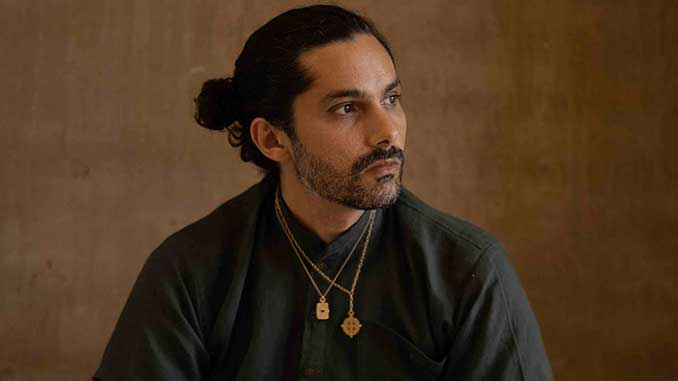 Who is Luka Lesson?
Who is Luka Lesson?
I’m an artist. I primarily work with words. But as with all art, this also means that I work with what is hidden behind the words. The energy, the intention and the information. Those three things combine, after making a million-minute decisions, to create a piece of art that I memorise and perform for people – some people call it Hip-hop, rap, poetry, spoken word, slam poetry, or storytelling – it doesn’t really matter to me anymore what people call it. It is me, telling a story in the best way I know how with the skills I’ve learned, the culture of my ancestors and the belief that narratives can change the world. It is me taking a huge risk on stage in front of a few hundred people but trusting the Ancient Greek poets who came before me have got my back.
What would you do differently from what you do now?
Nothing. Just keep going.
Who inspires you and why?
Benjamin Zephaniah. Hala Alyan. A resilient kid I met in a school in Taree named Jack Noble, my brother in poetry Omar Musa, the people who survive pain and flourish instead of choosing to be victims and die on their hills trying to prove a point to nobody. People who choose life as well as a clear resistance. I am inspired by those who overcome adversity in silence without needing to tell the world about it. By the first shoots after the bushfire. Protest movements that won’t go away no matter how they are manipulated and coerced into hating each other and themselves. Single mothers. Full-time Artists who refuse to be told it isn’t possible because they know the world needs it.
What would you do to make a difference in the world?
You’re assuming that I don’t. Everyday is a chance at making a difference in small ways. Often the people and movements that wish to make big changes do a lot of damage in other ways in the process of reaching their goals. I’ve met a lot of ‘revolutionaries’ in my life. Many of them treat their families like shit. Treat their workers like shit. Are full of ego and are addicted to the glory of saving the world. I know because I used to be one of them. And I’ve learned that one of the biggest acts of change we can do is work on ourselves in silence. To me, my art is both my creative outlet and my activism, this latest show about the Ancient Greek types of Love is my way of changing the world – of infusing more love into the ecosystem, something that I believe we need desperately right now.
Favourite holiday destination and why?
Bahia, Brazil – unsurpassed in music, culture, joy, creativity and food, food, food.
When friends come to town, what attraction would you take them to, and why?
Natural things – waterfalls, beaches, forests. I’m blessed to be living on Bundjalung Country.
What are you currently reading?
Plato’s The Symposium.
What are you currently listening to?
The playlist of the tracks from my latest show: Agapi & Other Kinds of Love.
Happiness is?
A picnic at the beach with my family, cooking a meal over a fire while the sun sets, remembering our lives are important – but that we are living on a blue and green ball in the middle of a vast universe and that we are also almost completely insignificant. So just enjoy the moment and appreciate what you have.
What does the future hold for you?
My dream is to perform at the greatest Ancient Greek theatre of all time: The Herodeon of Athens, at the foothills of the Acropolis. I don’t know if it will ever happen, but I am praying and taking tiny steps everyday in that direction.
Luka can be seen in Agapi & Other Kinds of Love – which will be presented at the is performing at Riverside Theatres, Parramatta (29 February – 1 March 2024). For more information, visit: www.riversideparramatta.com.au for details.
Agapi & Other Kinds of Love will also be presented at Nexus Arts Centre, Adelaide (10 May), The Engine Room Bendigo (17 May), Athenaeum Theatre, Melbourne (24 May) and Byron Theatre, Byron Bay (11 August). For more information, visit: www.lukalesson.com for details.
Image: Luka Lesson – photo by Sam Clarke
